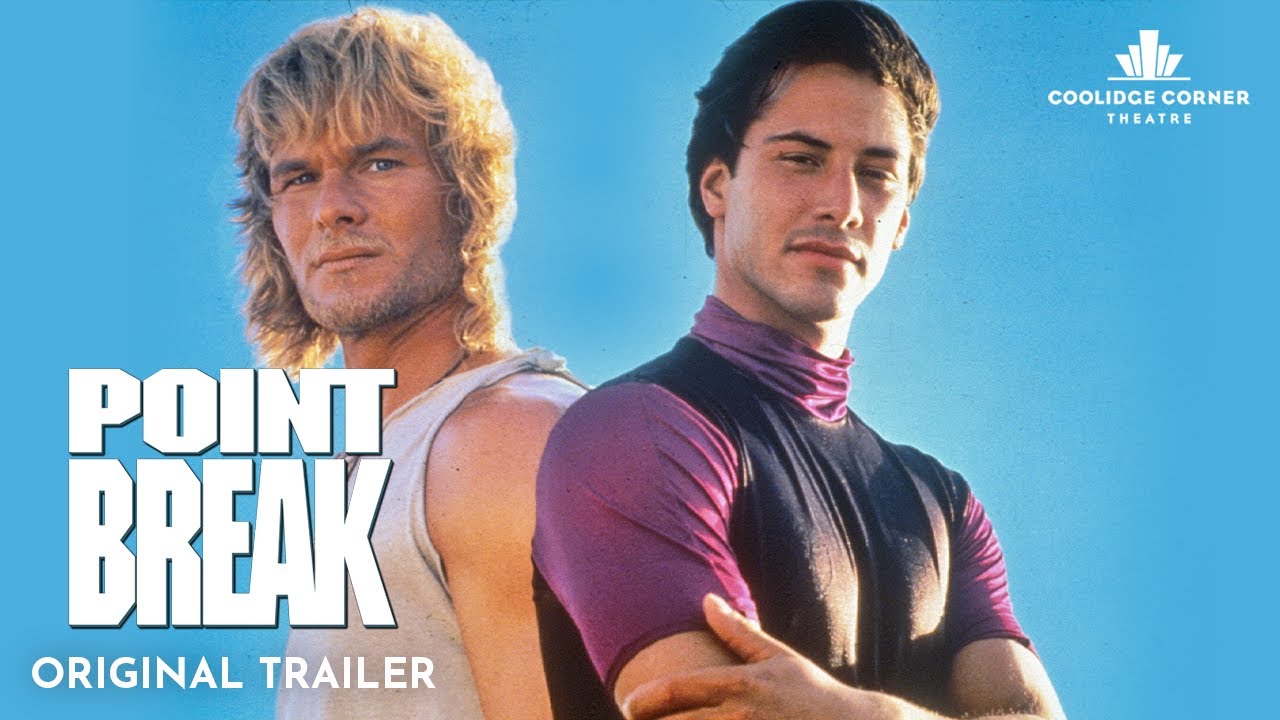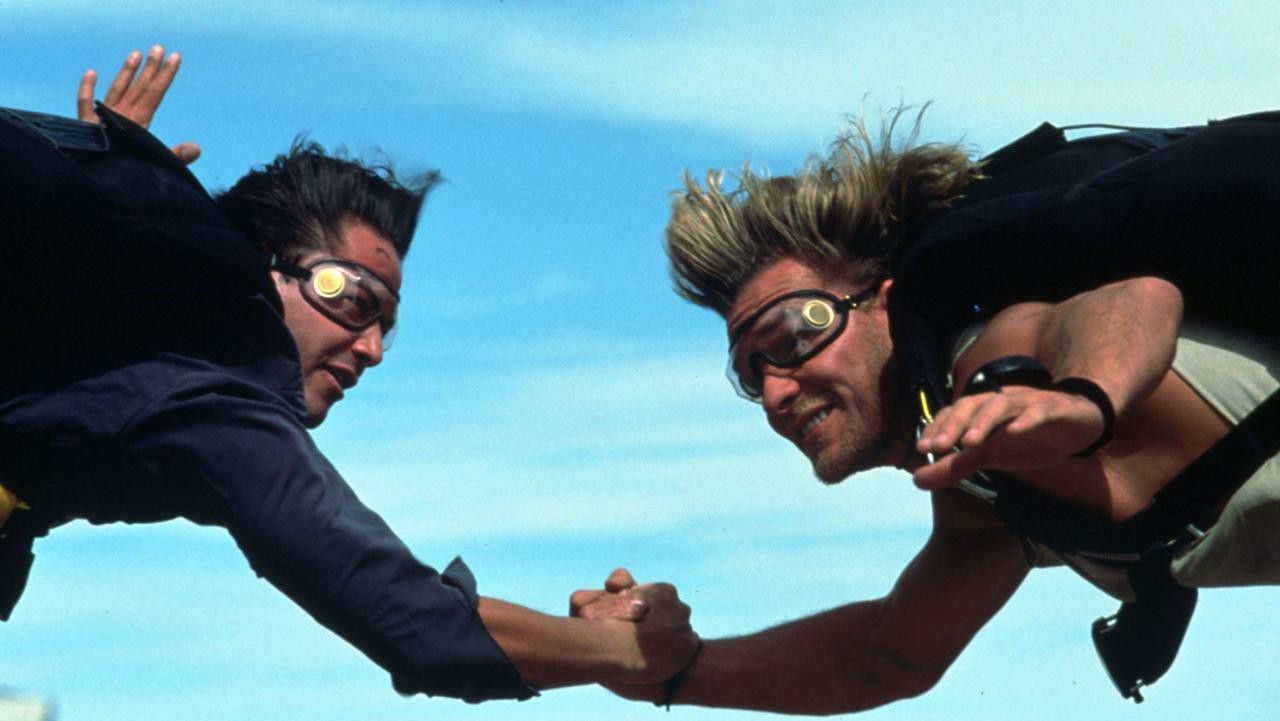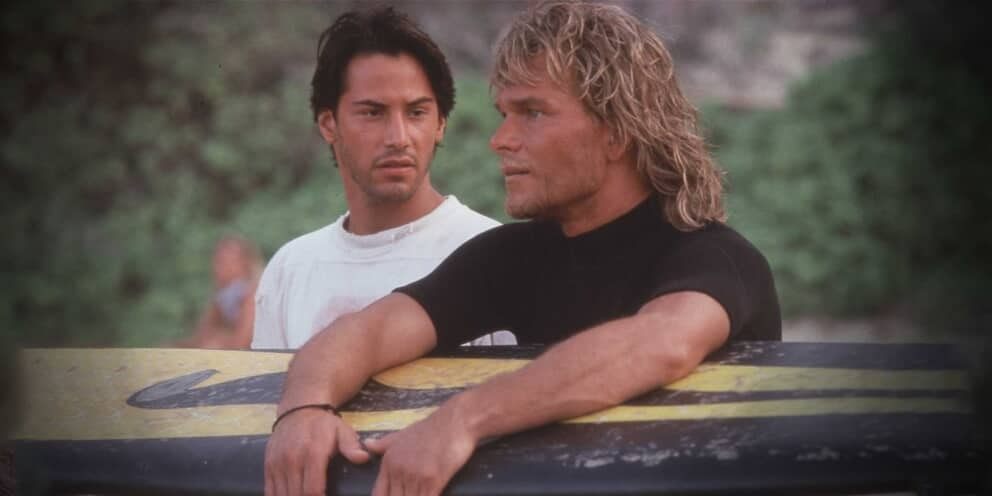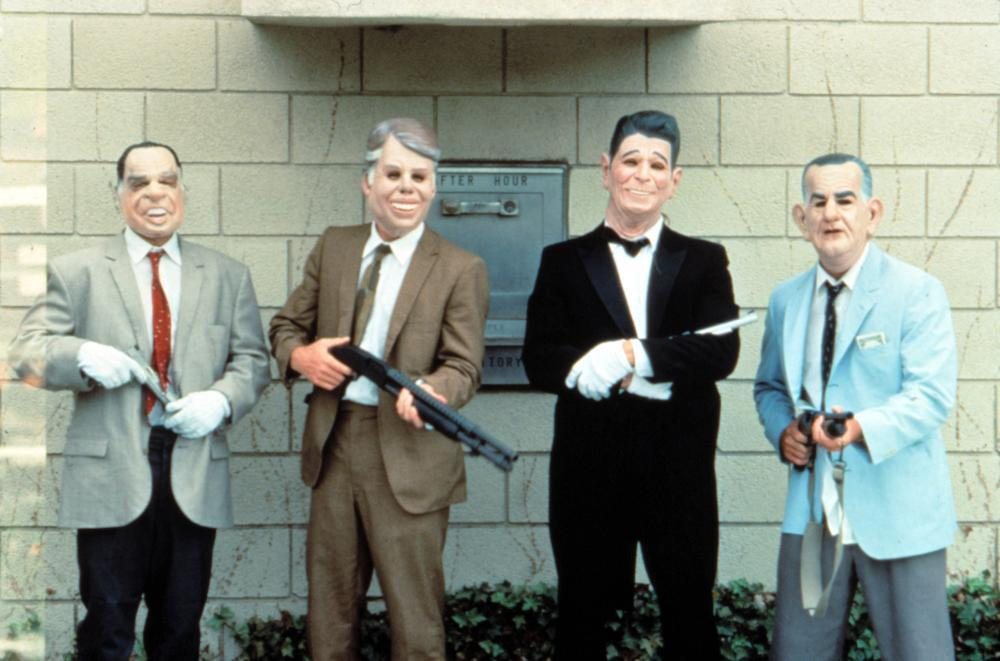Point Break (1991)

Point Break (1991) is an action-packed film directed by Kathryn Bigelow, with a screenplay written by W. Peter Iliff. The movie stars Patrick Swayze, Keanu Reeves, Lori Petty, and Gary Busey, and has become a cult classic in the action genre. Set against the backdrop of California’s beautiful beaches, Point Break follows an intense story of surfing, bank robbery, and undercover investigation. The film explores themes of trust, identity, and the pursuit of freedom, while also presenting a thrilling cat-and-mouse chase between two dynamic characters on opposite sides of the law.
The plot centers on Johnny Utah (Keanu Reeves), a young FBI agent who is assigned to infiltrate a group of surfers suspected of being behind a series of bank robberies. Johnny soon bonds with the charismatic leader of the group, Bodhi (Patrick Swayze), who embodies the free-spirited, thrill-seeking lifestyle. As Johnny spends more time with Bodhi and his crew, he begins to question his own identity and his commitment to the law. The film showcases the complex relationship between Johnny and Bodhi, as they grow to trust each other despite their opposing goals, making it a story of deep personal conflict.
One of the most striking aspects of Point Break is its exploration of the concept of identity. Johnny Utah, who initially views the surfers as criminals, becomes increasingly enamored by their way of life, especially Bodhi’s philosophy of living on the edge. As Johnny gets deeper into the world of surfing and extreme sports, he starts to question whether the thrill of freedom and living without limits is more important than his duty as an FBI agent. This internal struggle forms the emotional core of the film, as Johnny must decide where his loyalties truly lie.
Patrick Swayze’s portrayal of Bodhi is one of the film’s standout performances. Bodhi is a complex character—both a thrill-seeking outlaw and a philosopher who believes in living for the moment. Swayze captures the character’s charm, wisdom, and recklessness, making Bodhi a captivating figure who both inspires and challenges Johnny. Keanu Reeves, as Johnny Utah, provides a strong contrast to Swayze’s character, embodying the more methodical and law-abiding side of the equation. Their dynamic creates a thrilling push and pull, with Johnny’s respect for Bodhi growing as he becomes increasingly entangled in the surfers’ world.

The film’s direction by Kathryn Bigelow brings an undeniable energy and intensity to every action scene. The surfing sequences, in particular, are exhilarating, with Bigelow capturing the raw beauty of the ocean and the adrenaline rush of the sport. These scenes are not just visually stunning; they also represent the freedom and excitement that Bodhi and his crew chase, creating a sense of tension between the wildness of nature and the law that Johnny represents. The film’s action sequences, from high-speed chases to explosive confrontations, are crafted with precision, keeping the audience on the edge of their seats.

In addition to its intense action, Point Break explores deeper themes of trust and friendship. Johnny’s bond with Bodhi grows as they share a mutual respect for each other’s abilities, despite their differing lifestyles. Their relationship is tested as Johnny’s role as an undercover agent is revealed, leading to a dramatic and emotional climax. The film underscores the idea that trust is a fragile thing, and once broken, it can have far-reaching consequences, making for a poignant commentary on human relationships.

In conclusion, Point Break is a high-energy action film that delves into themes of identity, trust, and the search for meaning in life. With unforgettable performances from Patrick Swayze and Keanu Reeves, and dynamic direction from Kathryn Bigelow, the film remains a classic of the action genre. The thrilling combination of extreme sports, bank robberies, and personal conflict makes Point Break a gripping and emotionally charged experience. It’s a movie that explores the complex boundaries between right and wrong, freedom and responsibility, ultimately questioning what it means to live fully and authentically.











